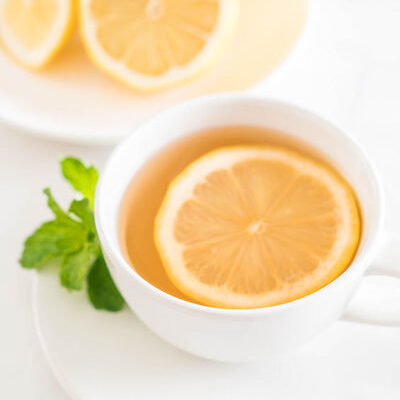
Lemon Tea
What is Lemon Tea?
Lemon tea is a mixture of lemon juice with black or green tea. The lemon juice gives it a distinct flavor that is different from regular tea.
The top five most popular green tea brands, according to Tam & Tea are:
- Twinings
- Harvey & Sons
- Yogi
- Numi
- Lipton
When lemon juice is added to tea, it changes color. This effect is known as a bathochromic shift. In 2018, worldwide tea production reached 5.8 million metric tons.
Origin of lemon tea
It is challenging to trace the exact origin of this tea, although records say that the tea plant has its roots in areas around Northern India, Tibet, and southwest China. Based on a Chinese legend, tea originated in 2737 BCE when the Chinese emperor, Shen Nong, discovered it by mistake. He was boiling water in his garden when a leaf from a wild tea tree above fell into the pot. The emperor enjoyed the resulting liquid and decided to conduct further research on the benefits of tea.
The consumption of tea became popular in the period of the Tang dynasty and during this classic age of tea, China recognized it as its national drink. Also, a Buddhist monk named Lu Yu described various types of tea, their properties, and their benefits. Saichō, a Japanese Buddhist monk, introduced tea to Japan in the early 9th century, when he brought back seeds from China to plant in his monastery. Other monks also started growing tea plants in their monasteries. However, tea only grew popular in Japan during the 13th century as the emerging tea plantations were isolated.
At that time, the standard way to prepare tea was to grind tea leaves into a powder form using a stone mill. During the Ming dynasty, people began to prepare tea by steeping the leaves inside hot water. A popular method to stop the oxidation in tea leaves was to dry, heat, and roll them. In the 17th century, a Chinese monk took these rolled tea leaves to Japan. In the 1800s, Soen Nagatani, a tea merchant, came up with the modern Japanese technique of steaming, drying, and rolling green tea leaves. Tea consumption became popular in America during the 19th century with lemon tea being one of the variants of this beverage.
Nutrition
In a 100g serving size, there are:
- 100 calories
- 0g of fat
- 25g of carbohydrates
- 0g of protein
This tea has numerous health benefits. Here are some of them:
- It can be used to treat cold and flu symptoms.
- It can offer protection against heart disease.
- This tea can be instrumental in eliminating toxins from the body.
- This tea possesses antioxidants that can fight against cancer development.
- Lemon can fight bacterial and viral infections.
- Its low-calorie content makes it suitable for weight loss.
However, this has its side effects. Here are some of them:
- This tea can affect dental health.
- Pregnant women are advised against consuming tea.
- If you are on medication, you should consult your doctor before drinking.
Commercial production
The following steps summarize the commercial production:
- Lemons and tea leaves are cut into pieces and mixed in a ratio of 6-8:2-4.
- The next stage involves placing the mixture into a baking oven.
- Finally, the baked mixture can be bagged to create tea.
Application
Basic tea with lemon is simple to make at home. All you need is tea leaves, lemon juice, and water.
- First, boil water inside a pan.
- Then, add the tea leaves into the hot water to let them steep for one minute.
- Next, strain the tea into a cup.
- Finally, add the lemon juice to the tea and enjoy
Lemon tea recipes
You can spice up lemon according to your taste. Here are some creative tea recipes for you:
FDA regulation
The Food and Drug Administration categorizes lemon as a raw agricultural product and is responsible for every aspect of its growing, harvesting, and packing. The FDA also describes the recommended amount of tea consumed per eating occasion for individuals above four years old. This reference amount serves as a basis for determining the serving size of tea products.
References
StayNaturally. ”Lemon Tea Benefits, Side Effects, Recipe, and FAQs.” staynaturally.com, Staynaturally blog, 23 Apr. 2020, www.staynaturally.com/lemon-tea/.
Saba. “13 Amazing Benefits Of Lemon Tea You can’t miss.” stylecraze.com, Stylecraze blog, 17 May 2019, www.stylecraze.com/articles/benefits-of-lemon-tea/.
“CFR – Code of Federal Regulations Title 21.”, accessdata.fda.gov, U.S Food & Drug Administration, 1 Apr. 2019, www.accessdata.fda.gov/scripts/cdrh/cfdocs/cfcfr/CFRSearch.cfm?fr=101.12.
